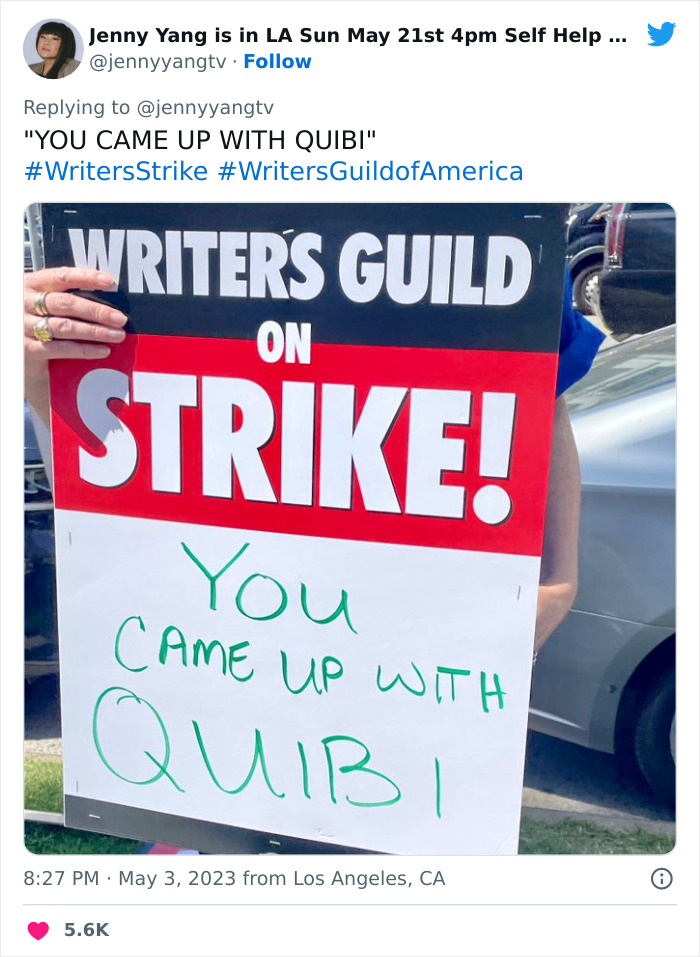I'll try not to be too much of a dick about this, but there are going to be a lot of I told you sos in the upcoming thread on the state of streaming and I'm not going to pretend that I'm not enjoying myself at least a little bit.
The immediate impetus was this episode of the Daily featuring NYT media reporter John Koblin discussing the writers' strike. It's reasonably informative if you haven't been following the story, but it was far more interesting part (at least for me) as a revision of what we've been hearing from the paper for the past decade.
The thing you have to keep prominently top of mind while trying to follow this story is that, with the exception of streaming being big, the standard narrative was wrong in every particular from revenue streams to business models to the quality of the IP to the winners and losers. That narrative has crashed so badly in the past half dozen or so years that even its most faithful adherents (a group that very much includes the New York Times) are starting to quietly back away from many of its major tenets.
Among the points being conceded are the wisdom of flooding the market with expensive programming, and the business logic behind combining binge friendly shows with no-commitment subscriptions, which always made about as much sense as letting people take doggy bags into an all-you-can-eat buffet.
Some of the points still being ignored include the rise of the ad-based streaming model which had long been declared dead, the fact that the most popular shows and profitable business models of the past few years did not come from the streaming sector, and the grossly exaggerated roll that original programming continues to hold in these discussions.
You would probably get the impression from listening to this that people mainly watch originals. The industry has, by this point, spent tens of billions of dollars in marketing and PR (yes, billions) to get reporters to believe this but the numbers do not back it up. People still mainly watch licensed shows like NCIS or the Big Bang Theory.
It's worth noting that when Koblin compares the economics of broadcast syndication to that of streaming, he leaves out that we are often talking about the same shows. Along similar lines, at around 24:00, you'll notice the omission of Taylor Sheridan when talking about big show runners. Taylor's Yellowstone is arguably the biggest thing to hit television in years, but in direct contradiction to the standard narrative, it comes from basic cable.
I realize I'm throwing out a lots of assertions here but we'll have lots of supporting evidence coming. If you're interested in the business of television, this should be an interesting discussion. If not, check back with us late next week.

No comments:
Post a Comment